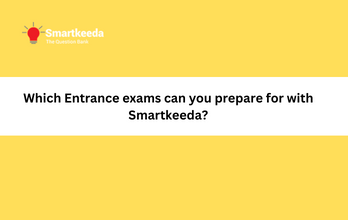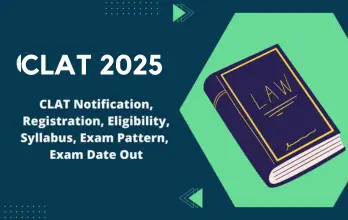CLAT is a centralized national-level entrance test that offers you the chance to get admission in 23 National Law Universities. CLAT is designed to test your aptitude for the field of law. Owing to its difficulty level, it is commonly termed as 'Mini CAT'. In this article, we will see why CLAT is considered one of India's toughest exams and how you can tackle those challenges in an easy yet smart way.
We know that the CLAT consortium fills around 1300 odd seats at the NLUs every year, and the number of Candidates is about 60,000, which works out to a selection percentage of roughly 2.2%. The CLAT paper of 2023 consisted of 52 pages. It contained 150 questions which were to be done in mere 120 minutes with 0.25 negative marking, that comes to an average of 45 seconds per question. Therefore, you need to be really fast in solving the paper as the time allotted is very less. The question paper of CLAT is lengthy, and you need to have a sound knowledge of all the topics to successfully attempt it thus, proper time management is crucial in this examination. The passages in the exam are usually very long and complicated, so you need to have excellent reading comprehension skills. On top of these, the competition is so tough that even those who manage to secure a good rank often find themselves struggling to get into their desired college because of the high cutoffs.
Thus, to be among the privileged 2.2% of students, you literally have to give all you have and some more. Cracking CLAT is not difficult, but it requires an immense amount of hard work. The RIGHT STRATEGY, RIGHT ATTITUDE, DISCIPLINE and sheer HARD WORK can get you across the line. If one goes through the exam pattern of CLAT, it will be clear that it does not require vast knowledge of the subject (except for current affairs). The major part of the exam comprises of 'Passage based Questions', which need common knowledge of English. So with proper technique and strategy, you can clear CLAT.
Here, we will share some points which will help you:
• Daily Newspaper Reading: It not only helps you with being up to date with current events, but also improves your English, especially comprehension.
• Focus on all subjects equally: Many people tend to focus more on one subject, ultimately degrading their performance.
• Learn time management: Decide what you have to study the next day one day in advance. This will help you cover all the sections and also save time as you wouldn't waste it deciding what to do next. If you've planned beforehand, it also motivates you as you know that you have to complete all this before the end of the day.
• Go through the current affairs daily: There are many online websites which provide you with free daily current affairs quizzes like GK Today and Testzone Mock drills.
• Get your basics straight: Though you may have studied Maths, English, and Reasoning in your school, the CLAT exam is not the same as your academic exams. To strengthen your basic foundation buy notes from some premier institute, this will save loads of your time. You may need to put more time into legal reasoning as it is an untouched subject for most of the students.
Apart from these, the right mentorship or the right Mock Test plays a vital role in your preparation journey. Several students who aim to clear the exam start their preparation after completion of High School and thus raise the bar for those 12th passed students who have yet to learn what CLAT is. Unfortunately, the number of students who have no idea of CLAT is more and thus, they are required to act smartly to enhance their chances of selection. Here's where the role of Test Series and mentorship comes into play.
We know that the CLAT consortium fills around 1300 odd seats at the NLUs every year, and the number of Candidates is about 60,000, which works out to a selection percentage of roughly 2.2%. The CLAT paper of 2023 consisted of 52 pages. It contained 150 questions which were to be done in mere 120 minutes with 0.25 negative marking, that comes to an average of 45 seconds per question. Therefore, you need to be really fast in solving the paper as the time allotted is very less. The question paper of CLAT is lengthy, and you need to have a sound knowledge of all the topics to successfully attempt it thus, proper time management is crucial in this examination. The passages in the exam are usually very long and complicated, so you need to have excellent reading comprehension skills. On top of these, the competition is so tough that even those who manage to secure a good rank often find themselves struggling to get into their desired college because of the high cutoffs.
Thus, to be among the privileged 2.2% of students, you literally have to give all you have and some more. Cracking CLAT is not difficult, but it requires an immense amount of hard work. The RIGHT STRATEGY, RIGHT ATTITUDE, DISCIPLINE and sheer HARD WORK can get you across the line. If one goes through the exam pattern of CLAT, it will be clear that it does not require vast knowledge of the subject (except for current affairs). The major part of the exam comprises of 'Passage based Questions', which need common knowledge of English. So with proper technique and strategy, you can clear CLAT.
Here, we will share some points which will help you:
• Daily Newspaper Reading: It not only helps you with being up to date with current events, but also improves your English, especially comprehension.
• Focus on all subjects equally: Many people tend to focus more on one subject, ultimately degrading their performance.
• Learn time management: Decide what you have to study the next day one day in advance. This will help you cover all the sections and also save time as you wouldn't waste it deciding what to do next. If you've planned beforehand, it also motivates you as you know that you have to complete all this before the end of the day.
• Go through the current affairs daily: There are many online websites which provide you with free daily current affairs quizzes like GK Today and Testzone Mock drills.
• Get your basics straight: Though you may have studied Maths, English, and Reasoning in your school, the CLAT exam is not the same as your academic exams. To strengthen your basic foundation buy notes from some premier institute, this will save loads of your time. You may need to put more time into legal reasoning as it is an untouched subject for most of the students.
Apart from these, the right mentorship or the right Mock Test plays a vital role in your preparation journey. Several students who aim to clear the exam start their preparation after completion of High School and thus raise the bar for those 12th passed students who have yet to learn what CLAT is. Unfortunately, the number of students who have no idea of CLAT is more and thus, they are required to act smartly to enhance their chances of selection. Here's where the role of Test Series and mentorship comes into play.
How Smartkeeda helps you?
The right Mock Test Series is very important in your preparation journey. Smartkeeda helps you to work on your weak areas, gives you a real exam interface and helps you to devise a strategy to manage your study plan and solve the question in a time-bound manner. It also gives you an idea of the Syllabus, Exam pattern, Previous Year Questions and basic details of CLAT.
Once you have prepared and completed the whole syllabus, the only way left to analyze your preparation is to attempt as many mock tests as possible as it tests your reading speed, ability to comprehend the passage and also your approach towards the question. For this, Smartkeeda provides you with 25 full-length mock tests so that you can have a fair idea of CLAT actual exam. It would be best if you gave as many full-length mocks as possible. After attempting the mocks, Smartkeeda provides you with the best after-test analysis. Here, you can check your strengths and weaknesses, time distribution, accuracy and performance graphs. These insights help you know how much more effort you have to put in to clear the CLAT.
The topic tests of Smartkeeda help you to improve your weak areas. As we have discussed earlier, each topic is significant in CLAT and you need to work on each area equally. For this purpose, Smartkeeda provides you with more than 960 topic tests so that you can easily prepare each topic right from the basic to the advance level.
Sections such as Legal Reasoning and Logical Reasoning are new to the CLAT aspirants and thus require more focus. To help you with this, Smartkeeda provides you with 'Sectional Tests', which consist of 10-12 tests of each section, enhancing your chances of clearing the paper.
According to the current CLAT exam pattern, you must be capable of reading 12,000 to 15,000 words in 2 hours, comprehend it and answer the questions asked. This seems to be a tough task but as rightly said "Nothing is impossible if you practice daily". Try to read as many passages, journals, articles and editorials as possible this will increase your reading speed. You can also use multiple apps, such as 'Qudoo' to improve your question-solving speed, 'Reader Pro' to enhance your reading speed, and 'The Hindu' to improve your comprehension skills and Vocabulary.

Author : Rohit Sharma
Hi, I am Rohit Sharma, the head of the Law exams vertical at Smartkeeda and an alumnus of NLU Punjab. Having successfully cleared the CLAT exam twice, I am currently engaged in teaching Legal Reasoning on the LawEx YouTube channel. Moreover, I contribute by writing blogs that are specifically tailored to the CLAT exams.





